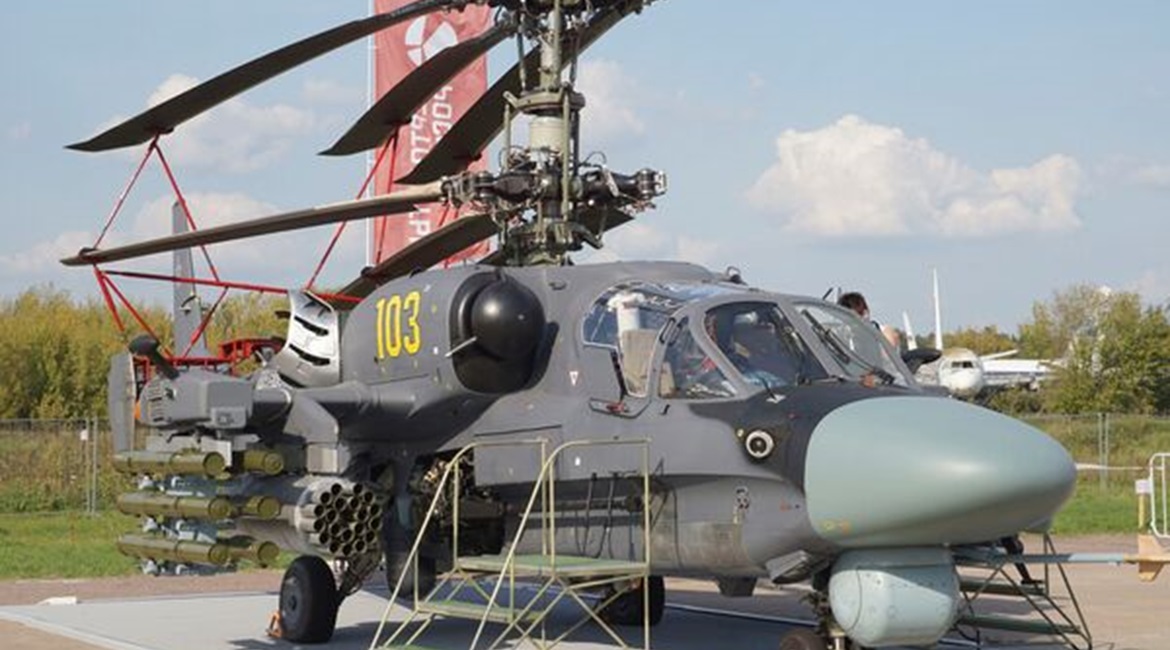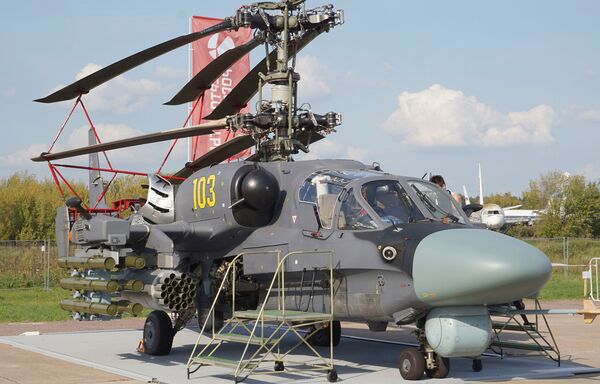
Rostec's Russian Helicopters detailed its newest Kamov Ka-52K Katran, the first Russian shipborne helicopter, during an 11 June presentation.
The Ka-52K has a maximum take-off weight of 12,200 kg, being heavier by around 1,400 kg compared with the Ka-52 due to a more robust ‘marinised' structure, the company said.
It carries a payload of 2,000 kg, or 500 kg less than the baseline rotorcraft. The Ka-52K is 13,900 mm long, 6,303 mm wide, and 5,100 mm high. The diameter of its co-axial main rotor reaches 14,500 mm.

The Ka-52K marinised combat helicopter. (Dmitry Fediushko)
Powered by two Klimov VK-2500/VK-2500P turboshaft engines with a power output of 2,500 hp each, the helicopter provides a top speed of 290 kmph, a cruise speed of 250 kmph, and a top climbing rate of 14 m/s. The Ka-52K also has a static ceiling of 3,600 m and a dynamic ceiling of 5,200 m. The rotorcraft can withstand a short-time overload of up to 2.5 g, according to Russian Helicopters.
Unlike the Ka-52 Hokum-B, the Ka-52K is fitted with two folding stub wings with two hardpoints for various weapons. Its co-axial main rotor has two propellers with three folding blades; it also carries a short-range radio-technical navigation system. The rotorcraft's electronic protection is provided by the President-S system.
The Ka-52Ks are armed with a Shipunov 2A42-1 30 mm automatic cannon with an ammunition load of 460 rounds. The platform can carry up to 80 S-8-family rockets in four 20-cell pods. The helicopter's guided missile armament comprises up to 12 9M120-1/9M120-1F Ataka AT-9 Spiral-2 or up to 12 9A-4172K Vikhr-1 AT-16 Scallion weapons. The missiles are mounted in two six-cell vertical (Ataka) or horizontal (Vikhr-1) pods.
Looking to read the full article?
Gain unlimited access to Janes news and more...




